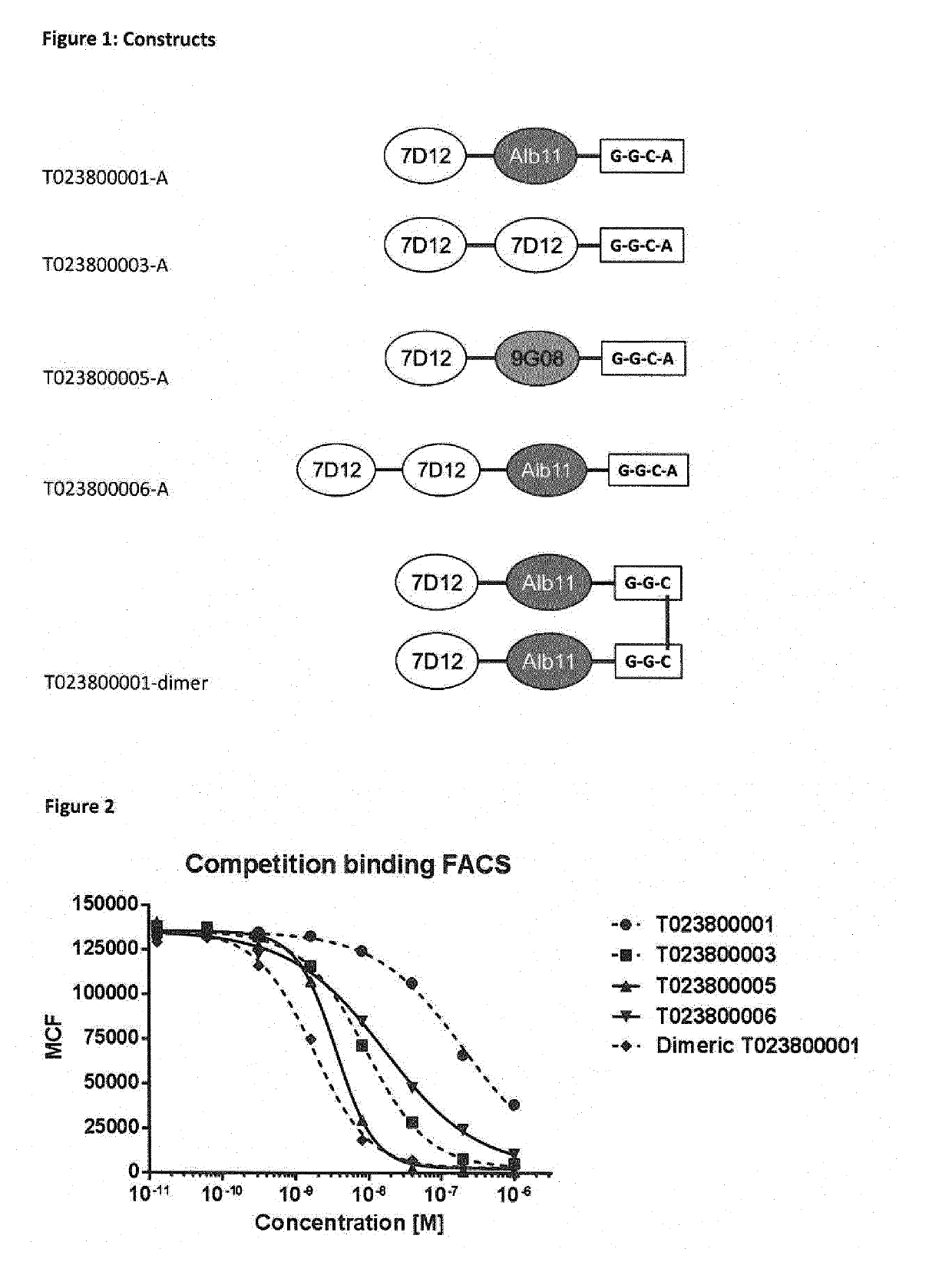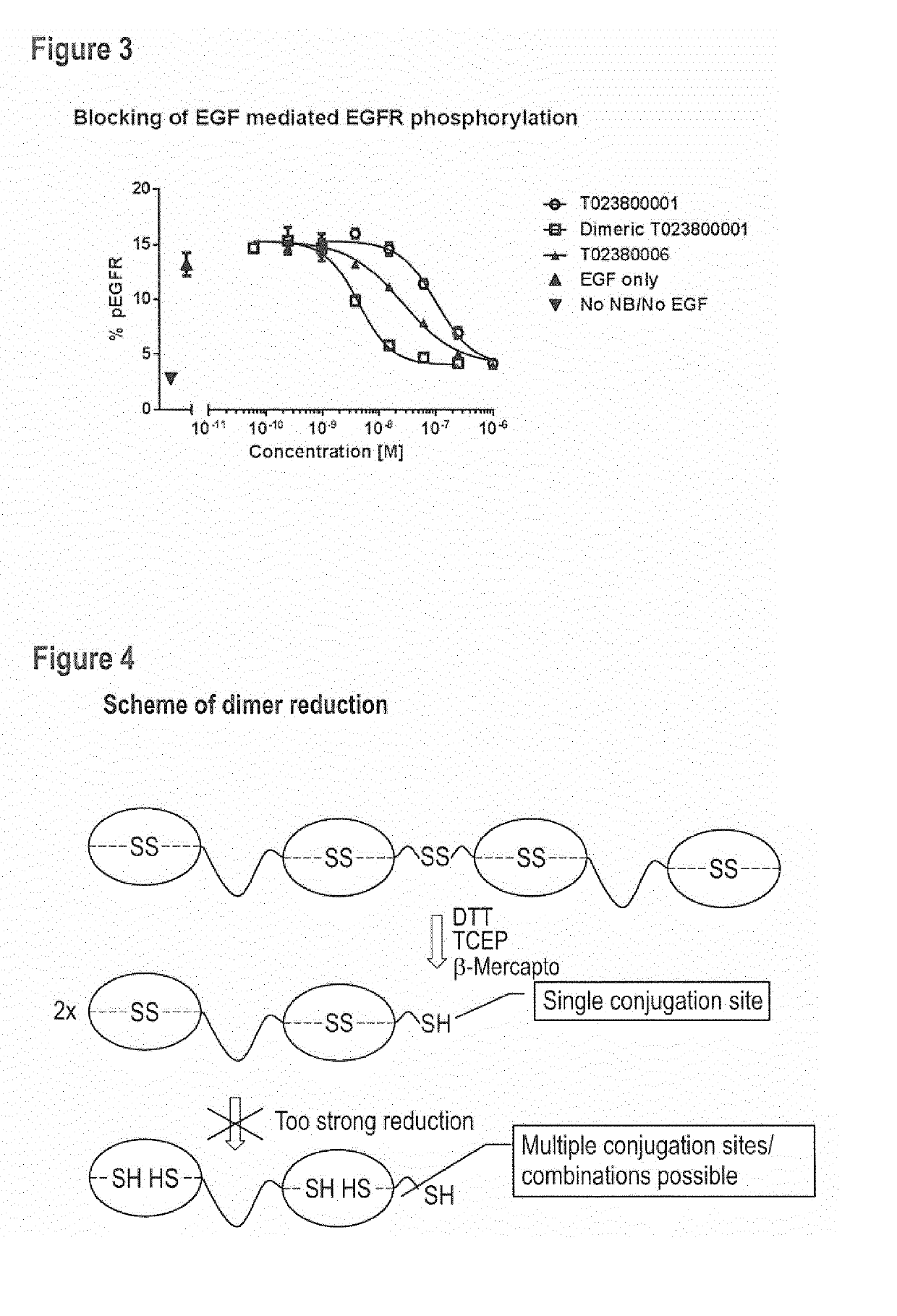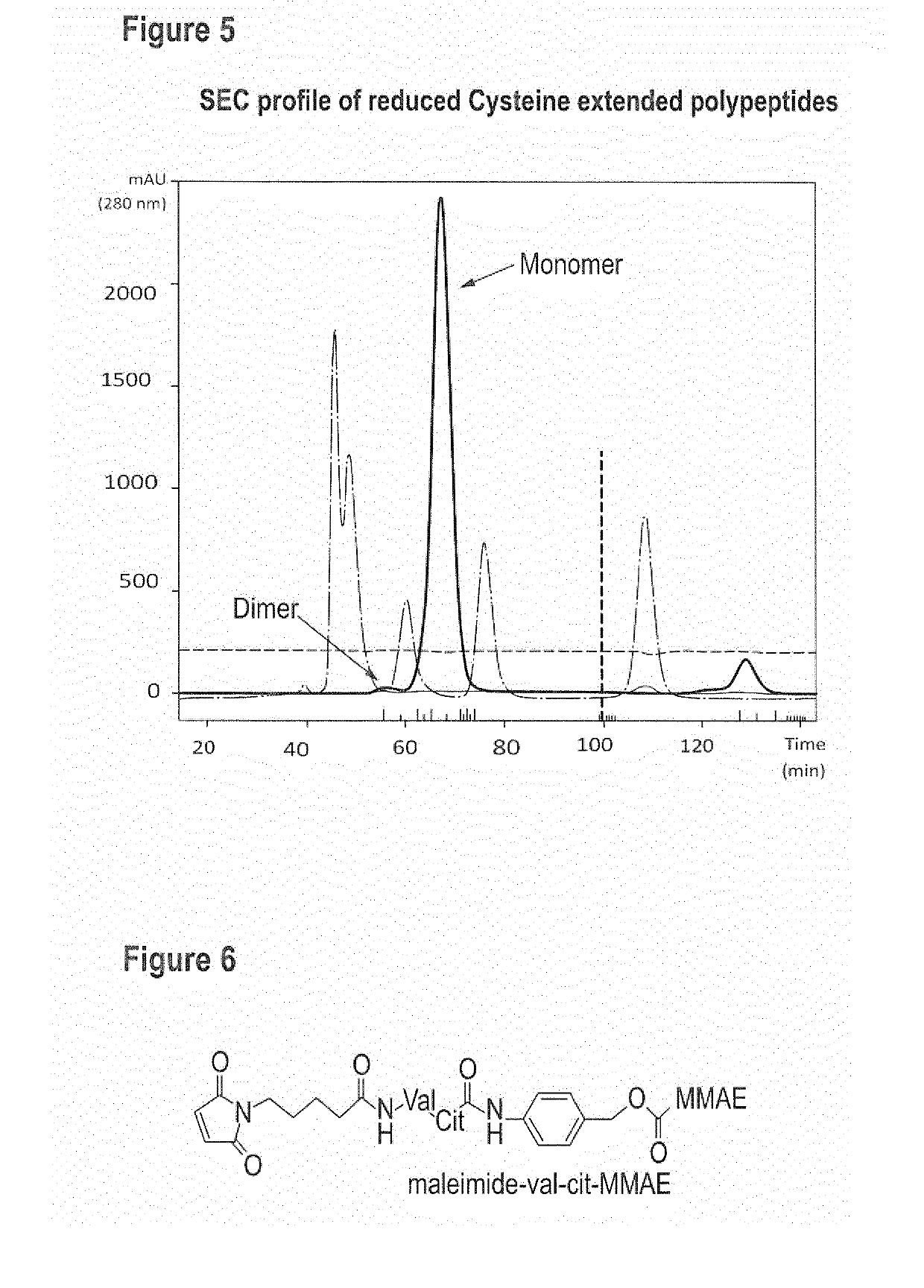Nanobody dimers linked via c-terminally engineered cysteins
- Summary
- Abstract
- Description
- Claims
- Application Information
AI Technical Summary
Benefits of technology
Problems solved by technology
Method used
Image
Examples
examples
[0443]1. Generation of building blocks
[0444]Various constructs were generated in P. pastoris, starting from the EGFR binding Nanobodies 7D12 and 9G08, and an albumin binding Nanobody ALB11 as depicted in Table 4.
TABLE 4ConstructsProduct NameBuilding BlocksT023800001-A7D12-20GS-ALB11-GGC-AT023800003-A7D12-20GS-7D12-GGC-AT023800005-A7D12-20GS-9G08-GGC-AT023800006-A7D12-20GS-7D12-20GS-ALB11-GGC-AT023800008-A7D12-20GS-9G08-20GS-ALB11-GGC-AT023800001-N[7D12-ALB11-GGC]C-S-S-C[CGG-ALB11-7D12]Ndimer
1.1 Genetic Fusion
[0445]The coupling of the building blocks 7D12 and Alb11 and linkers in various transpositions (order) in T023800001, T023800003, T023800005 and T023800006 was performed by genetic fusion according to standard protocols, for instance as described by Garaicoechea et al. (Garaicoechea et al. (2008) J Virol. 82: 9753-9764). Polypeptides were generated comprising various linker lengths and compositions (order of ISVDs and individual ISVDs). C-terminal extensions, including GGC, were...
PUM
| Property | Measurement | Unit |
|---|---|---|
| pH | aaaaa | aaaaa |
| pH | aaaaa | aaaaa |
| pH | aaaaa | aaaaa |
Abstract
Description
Claims
Application Information
 Login to View More
Login to View More - R&D
- Intellectual Property
- Life Sciences
- Materials
- Tech Scout
- Unparalleled Data Quality
- Higher Quality Content
- 60% Fewer Hallucinations
Browse by: Latest US Patents, China's latest patents, Technical Efficacy Thesaurus, Application Domain, Technology Topic, Popular Technical Reports.
© 2025 PatSnap. All rights reserved.Legal|Privacy policy|Modern Slavery Act Transparency Statement|Sitemap|About US| Contact US: help@patsnap.com



